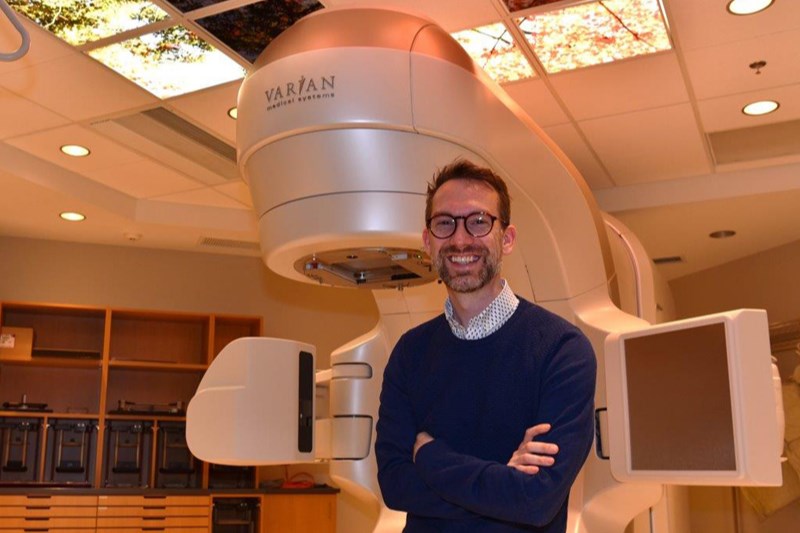There’s a high-precision cancer treatment that is in the third phase of clinical trials in northwestern BC and regional patients could be part of the new pilot project.
Dr. Rob Olson with BC Cancer and the UBC Northern Medical Program is running the clinical trial called SABR-COMET-3, which is a high-precision cancer therapy that delivers substantially higher doses of radiation to the tumour site in just one or a few treatment sessions.
The international trials based in Prince George will explore whether the application of SABR to sites of cancer spread can improve survival and potentially cure some patients.
The trails are also being conducted in
“I have been advocating to improve access to clinical trials for northern, rural, remote, and Indigenous communities since I was recruited to the North in 2010, and I believe increasing access will lead to better treatment options and outcomes for northern patients,“ said Olson, the department head at BC Cancer – Prince George.
“We have a dynamic team in Terrace which includes Dr. Jaco Fourie, Dr. Jo Collins, and Dr. Denise Jaworsky. They will be completing clinical trial training, which will enable them to participate in patient trial follow-up visits, perform trial specific physical examinations, and record and report benefits and potential adverse events from the SABR treatments.
“We hope to demonstrate that it is feasible to partner with local physicians to remotely care for patients participating in clinical trials and accurately record and manage their potential side effects.”
The northwestern pilot project will enable patients in Terrace and surrounding communities such as Hazelton, Kitimat,
“Instead of always traveling for trial follow-up with a specialist, patients will be able to see a local Terrace physician with oncology training who will provide care and also perform physical exams to document toxicity and benefits from the SABR treatment while the oncologist will remotely consult over phone or video link,” said Dr. Jaco Fourie, Northern Health Cancer Care Medical Lead and GPO (general practitioner in oncology).
Patients are currently being chosen for all these trials.
“We’re hoping that this changes the future of clinical trials in B.C. and elsewhere,” Olson said. “It will allow patients to participate in trials they would have previously declined because of the cost and inconvenience of travel. In many circumstances, the treatment intervention being investigated, such as chemotherapy or SABR, is only available to patients on trial and I strongly believe that all patients across B.C. should have equal access to clinical trials as a component of their care.”
The SABR-COMET-3 trial, and the northwest pilot project, is supported through funding from the Canadian Institutes of Health Research, Varian Medical Systems, the BC Cancer Foundation, Rio Tinto (in conjunction with the Prince George Community Foundation) and the Canadian Cancer Clinical Trials Network’s Canadian Remote Access Framework for Clinical Trials (CRAFT) initiative.
The SABR-COMET-3 Phase III trial builds on the success of the previous Phase II trial which demonstrated that SABR can greatly increase survival rates in patients who had previously been treated for cancer only to have their cancer return in other parts of the body.



